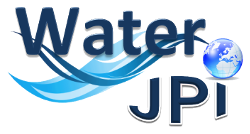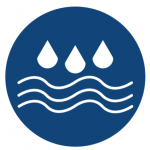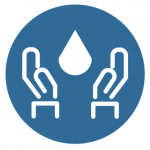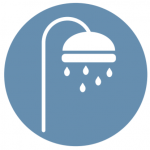Joint Programming Initiatives are inter-governmental collaborations meant to tackle major societal challenges unable to be addressed by individual countries and in doing so contribute to the development of the European Research Area. Member States and Associated Countries participate in joint initiatives on a voluntary basis in order to increase the value of relevant national and European R&D funding through joint planning, implementation and evaluation of national research programmes. Launched in 2010, the Joint Programming Initiative Water challenges for a changing world, the Water JPI, tackles the ambitious challenge of achieving sustainable water systems for a sustainable economy in Europe and abroad.
The JPI “Water challenges for a changing world” deals with research in the field of water and hydrological sciences. The availability of water in sufficient quantities and adequate quality is indeed a public issue of high priority and addresses a pan-European and global environmental challenge.
The Council of the European Union decided to launch the Joint Programming Initiative “Water Challenges for a Changing World” on 6 December 2011 as a contribution to the reduction of fragmentation of efforts by Member States and mobilisation of skills, knowledge and resources, with a view to strengthening Europe’s leadership and competitiveness on water research and innovation.
Europe invests an estimated amount of 500 million € per year to fund public research and innovation activities in water. While European countries invest 370 million €, the European Commission invests 130 million €. The Joint Programming Initiative will actively cooperate with the European Commission to provide the European society with the maximum return of these investments. The Initiative responds to the grand challenge of “Achieving Sustainable Water Systems for a Sustainable Economy in Europe and Abroad”. No single European country can address this challenge by itself, due to the magnitude of the needed operations and to the geographical variation of the water problems. Responding to the grand challenge requires a joint multi-disciplinary approach, since outstanding economic, ecological, technological and societal challenges are to be addressed.
Strategic Research &Innovation Agenda 2025
The purpose of the Strategic Research and Innovation Agenda (SRIA) is to lay down guiding principles and identify research priorities for the future, while making them openly accessible to the various stakeholder groups including policy makers, regulatory agencies, researchers, end users (such as water enterprises and water utilities & river basin management bodies) and the public.
The Water JPI SRIA 2025 core research themes are Ecosystems, Health and Wellbeing, Water Value and Usage and Sustainable Water Management. This new Strategic Research and Innovation Agenda for the Water JPI will guide the activities over the next 5 years. It details each of the core themes that will in turn form part of an Implementation Plan with descriptions of tasks and indicators.
The SRIA is a “living” document that is updated every 5 years. Its development has resulted from a collective, forward-looking revision exercise that identifies and sets out an integrated vision of water RDI priorities at regional, EU and global levels.
The SRIA 2025 has resulted from a comprehensive and extensive consultative process, which built on the three previous iterations of the SRIA (versions 0.5 in 2013, 1.0 in 2014 and 2.0 in 2016). Both the Vision and the SRIA have been revised to take account of the changes in key policies that have occurred since 2011, such as the ongoing water trends and challenges in both a European and a global context, expansion of the Water JPI membership and increased collaboration agreements and partnerships.
With the launch of the new European Research and Innovation Framework Programme, Horizon Europe, cooperation with the new “partnerships” is being taken into account.
A critical review of the Water JPI research themes from Vision 2011 made during the period 2018–2019 confirmed that these research themes are still valid. It was then recommended that the 11 sub themes to be revised, to more representative, relevant and succinct themes.
Sub-Theme A.1 Developing approaches for assessing and optimising the structure and function of ecosystem services.
Sub-Theme A.2 Developing and applying an approach to ecological engineering and ecohydrology
Sub-Theme A.3 Managing and adapting ecosystem services to the effects of hydroͲclimatic extreme events
Sub-Theme B.1 Emerging contaminants and associated risks: monitoring, remediation and assessing their effects and behaviour on nature and humans.
Sub-Theme B.2 Water dimension of antimicrobial resistance; “one health approach”.
Sub-Theme B.3 Understanding and minimising the risks associated with water infrastructures and climate change effects.
Sub-Theme B.4 Assessing and evaluating the sustainable interactions between different users (people, agriculture, industry and nature) and their water demands to promote a coordinated resource management strategy
Sub-Theme C.1 FutureͲproof water technologies, infrastructures and systems for developing climate change resilience.
Sub-Theme C.2 WaterͲsmart circular economy and societies.
Sub-Theme C.3 Empowering the public, water users and stakeholders in valuing water.
Sub-Theme D.1 Optimising the Nexus approach.
Sub-Theme D.2 Adapting water resources management to deal with increased uncertainty.
Sub-Theme D.3 Enabling sustainable management of water resources.





